02 Apr 2025
Austrian ERA Correspondents meet EC and stakeholders in Brussels to discuss current R&I policy issues
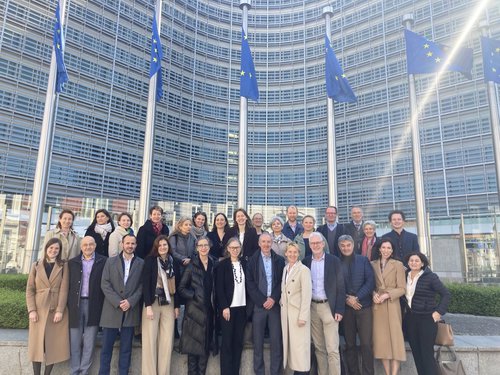
Source: (c) BMFWF
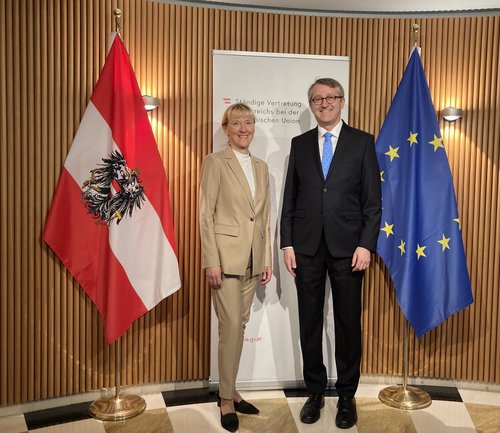
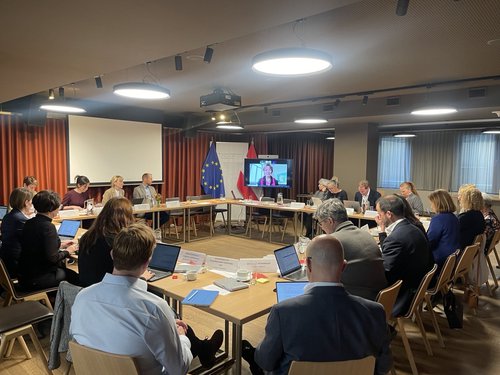
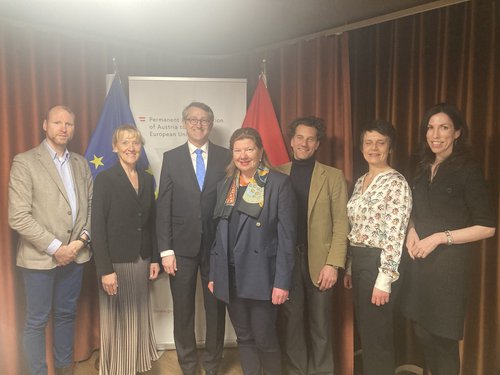
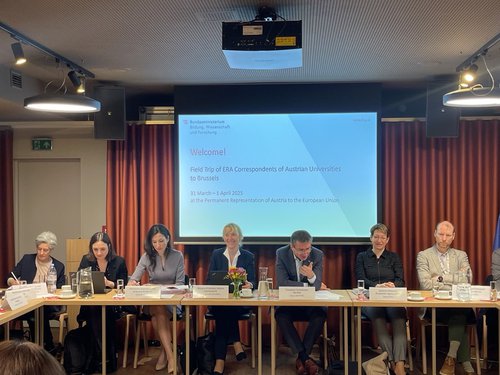
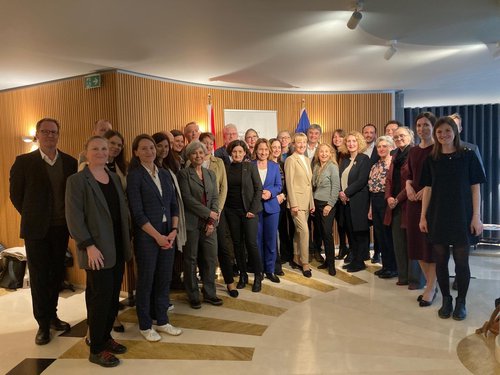
On 31 March and 1 April 2025, the vice-rectors for research from Austrian public universities, in their function as ERA Correspondents, met with EU officials and stakeholders in Brussels to discuss EU RTI policies affecting higher education insitutions. The field trip was organised by the Austrian Federal Ministry of Women, Science and Research (formerly Ministry of Education, Science and Research), with contributions from the Austrian Research Promotion Agency (FFG) and Universities Austria, and hosted by the Permanent Representation of Austria to the EU. The meetings were chaired by Barbara Weitgruber, Director-General for Scientific Research, International Affairs, Gender and Diversity.
On 31 March 2025, after a welcome address by Ambassador Franz Wirtenberger, Stefan Zotti from the EC’s DG EAC, gave an overview of current activities of the European Universities Initiative and gave an outlook on possible future developments of the initiative. Austria is highly active in the initiative, participating in 17 out of the current 65 alliances. As the second agenda item, Thomas Estermann and Anna-Lena Claeys-Kulik of the European University Association introduced their innovative leadership program with a taster session: They prompted vice-rectors to strategise on a hypothetical scenario involving the possible discontinuation of FP10 but with increased funding via a competitiveness fund.
During the afternoon session, attendees had the opportunity to engage in a videoconference with ERC President Maria Leptin, delving into the future role of the ERC with a particular emphasis on the involvement of universities. Leptin expressed support for the European Parliament’s call for a ring-fenced and independent Framework Programme, advocating for the strengthening of both the ERC and the European Innovation Council (EIC). While the future remains unclear, from the ERC’s perspective, several key priorities are clear: the necessity to at least double the EU-level budget for research, to continue prioritising excellence in funding decisions (over innovation as a selection criterion), and securing the ERC’s independence in the selection process. This session was followed by an exchange with Jan Palmowski, Secretary-General of The Guild of European Research-Intensive Universities, on the role of basic research and SSH in the context of the current EU policy debate. The discussion revolved around questions about the European Competitiveness Fund (ECF). According to Palmowski, the ECF will require universities to increase their agility, posing challenges for research services to adapt quickly, and potentially exacerbating employment precarity.
An evening reception was dedicated to the opportunities for working for the EU institutions in Brussels, and first-hand experience of those already working there, against the background of the fact that Austrians are currently rather under-represented at the EU institutions.
The second day started with a discussion with Marc Lemaître, Director-General of EC’s DG RTD, on developments in EU RTI Policy. Topics included unresolved issues regarding the upcoming next Research Framework Programme and developments in the ERA. Marc Lemaître highlighted universities’ critical role in boosting competitiveness, noting that research and innovation capacities are vital for "healthy competitiveness." Regarding the ERA Act, he stressed that it aims to mobilise resources for future research and innovation, align priorities between Member States and the EU, and establish supportive conditions for research and researchers. This was followed by a session on the role of universities as Mission drivers, where Niels Bech Lukassen, Thomas Bak and Charlotte Pedersen from Aalborg University in Denmark reported on their university's experience in working on mission topics. The universities’ elaborated mission governance currently successfully deals with three missions: “A Sustainable Danish Energy System,” “Improved Wellbeing among Children and Youth in Denmark,” and “Improving Health through Coherence and Individualization.”
The afternoon was dedicated to ERA topics, starting with Martin Schmid’s overview of the ERA Policy Agenda 2025-2027, followed by Javier Lopez Albacete (DG RTD) who highlighted the activities in research assessment of the European Commission and CoARA (the Coalition for Advancing Research Assessment). The last session focused on the implementation of knowledge valorisation as a strategic focus of universities, with Margit Noll (FFG), Ioannis Sagias from DG RTD and Laurin Reding, Head of SwissCore, the Swiss liaison office in Brussels, as speakers.
In the evening, participants were invited to join the event 'Stronger Together: How Austrian Technical Universities benefit from European University Alliances' organised by TU Austria, the three Austrian technical universities, at Austria's Permanent Representation to the EU.